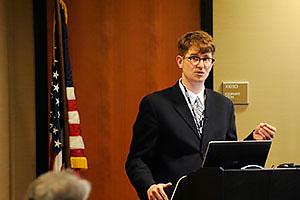Economic impacts are one of the most important changes NIEHS can support in funding environmental health science research. To facilitate the incorporation of economic analyses into environmental health research, NIEHS has developed tools and resources that can be accessed here. The tools showcase the evaluation of economic impacts from policies, practices, and behaviors that reduce exposure to environmental toxicants, prevent disease, and improve public health.
We encourage researchers interested in environmental health economic analysis (EHEA) to review the resources below and consider ways to add EHEA to ongoing environmental health studies. We do not plan to support specific EHEA funding opportunities at this time, but we welcome questions.
Resources from NIEHS
Worker Training Program (WTP): The WTP awards grants to nonprofit organizations that train workers in the safe handling of hazardous materials or emergency response to hazardous spills. WTP uses economic analyses to understand the extent to which the program saves businesses and municipalities money or increases job opportunities for community members.
- The Economic Impact of the Environmental Career Worker Training Program: This 2015 WTP report included a finding that an annual federal investment of $3.5 million in the program generates a $100 million annual return.
- The Economic and Social Benefits of OSHA-10 Training in the Building and Construction Trades: This 2013 report was commissioned by a WTP grantee to determine the economic value of OSHA-10 training.
National Toxicology Program (NTP): The NTP conducts systematic reviews of links between environmental factors and health outcomes. The NTP has data that could be used to measure and conduct EHEA.
Grantee Examples: NIEHS does not have a formal EHEA program, but we have identified NIEHS-funded grants that include economic analyses in their research questions and findings.
Training Resources
- National Library of Medicine: A self-study course on Health Economics Information Resources
Data Sources

Leonardo Trasande, M.D., describes a new method for estimating the economic impact of the chemical bisphenol-A during a lecture at NIEHS.
(Photo courtesy of Steve McCaw)
The following data sources have been identified as having economic data related to health outcomes and environmental exposures typically included in NIEHS-funded research.
- Behavioral Risk Factor Surveillance System
- DATA.GOV
- EPA Environmental Benefits Mapping and Analysis Program (BenMAP-CE)
- Global Burden of Disease (GBD)
- Kaiser Family Foundation
- Kaiser Permanente: Research Program on Genes, Environment and Health
- Medicaid Statistical Information System (MSIS) State Summary Datamarts
- Medical Expenditure Panel Survey
- Medicare HOS Research Data Files
- National Cancer Institute – Surveillance, Epidemiology, and End Results Program
- National Health and Nutrition Examination Survey
- Pew Research Center: Data
- The California Endowment
News Articles
- Chemical Exposure Linked to Billions in Health Care Costs (National Geographic, 2015)



